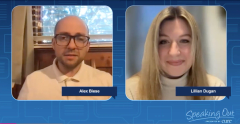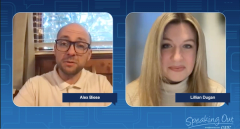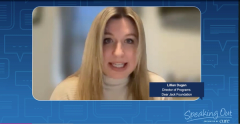
Research Shifting to Younger Patients with Cancer
As part of its Speaking Out video series, CURE® spoke with Lillian Dugan of the Dear Jack Foundation about the current landscape of research for adolescent and young adult patients with cancer.
Strides have been made in cancer research towards understanding and treating the disease. However, there remains a critical gap in addressing the unique needs of adolescent and young adult (AYA) patients.
Speaking with CURE® as part of the “Speaking Out” video series, Lillian Dugan, director of programs for the Dear Jack Foundation, which offers support programs for young adult patients with cancer and survivors, discussed the current landscape of cancer research for AYA patients and the importance of tailored treatment approaches.
Dugan noting that while pediatric and adult patients have traditionally received more attention, there is a growing recognition of the distinct challenges faced by young adults aged 18 to 39.
"Research has kind of shifted from the pediatric population and the adult population to now we have this young adult population, which is right in the middle," she said. This shift signals a crucial step towards addressing the unmet needs of AYA patients and developing targeted therapies specifically designed for this demographic.
When examining research for AYA patients, Dugan underscored the importance of considering their unique psychosocial needs and developmental stage. AYA patients are navigating critical life transitions such as college, career and relationships. Consequently, their treatment journey encompasses not only medical interventions but also considerations of quality of life and long-term survivorship.
"The age is super important in [discussing] some of these treatments because they do have a lot ahead of them and a lifetime of post-cancer," Dugan emphasizes.
Navigating the patient-provider dynamic can also pose challenges for AYA patients, particularly in advocating for their treatment preferences and life goals. Dugan emphasized the importance of self-advocacy and open communication between patients and healthcare providers.
"Talking to your doctor and having those conversations and making sure that your life goals and your treatment goals align is very important," she said.
Dugan also acknowledged the practical constraints faced by AYA patients, such as balancing treatment with work or education commitments. Enrollment in clinical trials, for example, may present logistical challenges for young adults juggling multiple responsibilities, and "a lot of these treatments are full-time jobs," Dugan noted.
For more news on cancer updates, research and education, don’t forget to








